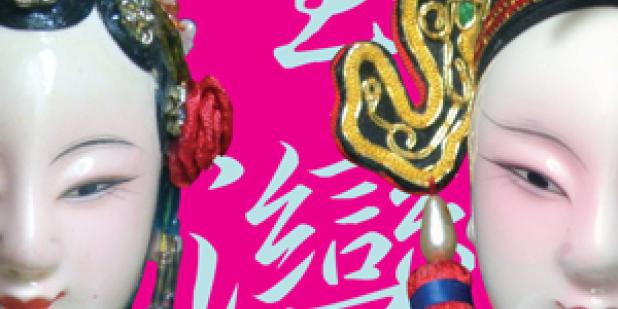Join us for a free one-day workshop for educators at the Japanese American National Museum, hosted by the USC U.S.-China Institute and the National Consortium for Teaching about Asia. This workshop will include a guided tour of the beloved exhibition Common Ground: The Heart of Community, slated to close permanently in January 2025. Following the tour, learn strategies for engaging students in the primary source artifacts, images, and documents found in JANM’s vast collection and discover classroom-ready resources to support teaching and learning about the Japanese American experience.
Puppets, politics and identity in Taiwan
The UCLA Center for Chinese Studies presents Robin Ruizendaal, speaking about the development of puppet theatre in Taiwan from the stage performance to the television screen and its role as a symbol of a distinct Taiwanese identity.

In 2006, glove puppet theatre was chosen as the symbol that could best represent Taiwan in a national opinion poll by the Government Information Office. Puppet theatre gained over 130.000 votes, beating both the highest mountain (Jade Mountain) and the highest building (Taipei 101), who respectively became second and third. Puppet theatre is viewed as an expression of Taiwanese grass-roots culture and the puppets symbolize far more than the characters they represent. Politicians from different parties are eager to be photographed with a puppet or puppeteer during election season. Television puppet shows have unleashed a craze among young people, which is quite unique in Asia. This paper will chart the development of puppet theatre in Taiwan from the stage performance to the television screen and its role as a symbol of a distinct Taiwanese identity.
Dr. Robin Ruizendaal earned a Ph.D. In Chinese studies from Leiden University, The Netherlands, and has been doing research on puppet theatre for over twenty years, including extensive fieldwork in China and Southeast Asia. He is the Director of the Taiyuan Asian Puppet Theatre Museum in Taipei (formerly the Lin Liu-Hsin Puppet Theatre Museum) and Artistic Director of the Taiyuan Puppet Theatre Company. He has written and directed quite a number of plays for both actors and puppets, that have been performed in over 30 countries.
He has planned and curated several exhibitions on puppet theatre and Taiwanese history. Including the Ilha Formosa exhibition at the National Palace Museum in 2003 and more recently A World of Puppets exhibition at the East West Center in Hawaii. He is also curator of most exhibitions in the Taiyuan Asian Puppet Theatre Museum in Taipei.
Dr. Ruizendaal has published widely on the subject of puppet theatre. His extensive research on marionette theatre in southern China, Marionette Theatre in Quanzhou, was published with Brill Publishers in the Netherlands in 2006. The book Asian Theatre Puppets was published by Thames & Hudson in 2009. He is currently working on a research project of southern Chinese glove puppet theatre, potehi, companies in Southeast Asia, together with scholars from Malaysia, Singapore, Indonesia, Myanmar and Japan. The book of this research: Potehi, Glove Puppet Theatre in Southeast Asia and Taiwan, will be published in 2015.
Featured Articles
Please join us for the Grad Mixer! Hosted by USC Annenberg Office of International Affairs, Enjoy food, drink and conversation with fellow students across USC Annenberg. Graduate students from any field are welcome to join, so it is a great opportunity to meet fellow students with IR/foreign policy-related research topics and interests.
RSVP link: https://forms.gle/1zer188RE9dCS6Ho6
Events
Hosted by USC Annenberg Office of International Affairs, enjoy food, drink and conversation with fellow international students.
Join us for an in-person conversation on Thursday, November 7th at 4pm with author David M. Lampton as he discusses his new book, Living U.S.-China Relations: From Cold War to Cold War. The book examines the history of U.S.-China relations across eight U.S. presidential administrations.




